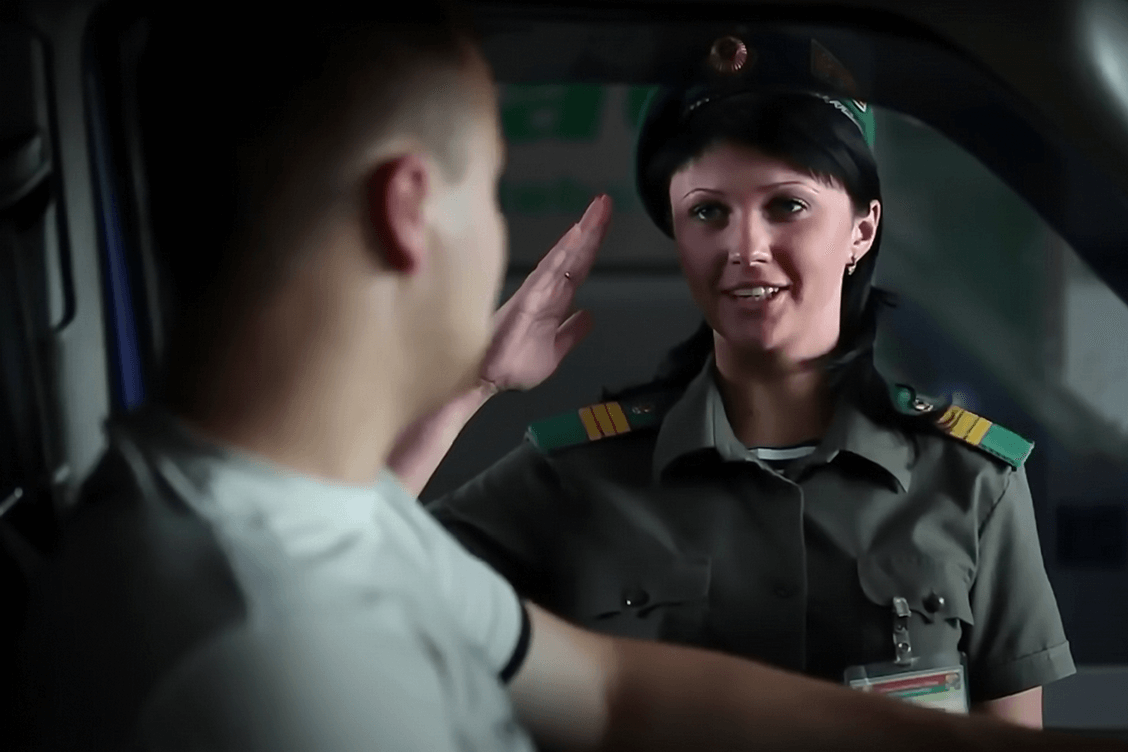Following decisions by Estonia, Latvia and Lithuania to ban the entry of vehicles with Belarusian license plates, Minsk has expanded its visa-free travel program to include Europeans entering the country through land checkpoints.

For many years, Minsk said it was guided by the principle of reciprocity in issuing visas. It eased entry formalities to the extent that other countries eased visa requirements for Belarusians.
That was a principled stance, touted as a matter of sovereignty and even national dignity, showing a reluctance to make unilateral concessions. A few years ago, Belarus made an exception for three neighboring EU countries.
The new move looks unusual because autocracies usually fence themselves off, instinctively seeking self-isolation from external threats.
Moreover, Alaksandar Łukašenka accused neighbors of hosting camps to train militants seeking to overthrow him. His government has introduced stricter rules requiring hosts to report foreign guests to police within three hours on arrival.
Message to West
Visa-free travel, along with some other measures, looks like a message to the West.
On July 13, Łukašenka unexpectedly toned down his hostile Ukraine rhetoric, probably for the first time since the beginning of the Russian invasion in February 2022.
On July 15, Foreign Minister Maksim Ryžankoŭ told reporters that Belarus was ready for dialogue to ease tension with Poland.
Around the same time, the state-run news agency BelTA quoted Belarus’ charge d’affaires to the United States, Pavieł Šydłoŭski, as saying that Minsk was “ready for constructive cooperation with the United States.”
In a separate development, the government released 18 political prisoners in early July. Obviously, the Belarusian government is playing a strange, not fully comprehensible game with the West.
Political benefits
On June 29, the EU imposed new sanctions on Belarus, prompting Poland to restrict the import of goods to Belarus by individuals. Estonia, Latvia and Lithuania banned the entry of cars with Belarusian license plates.
In contrast to its neighbors, Minsk expanded the visa-free travel program to include 35 European countries, in addition to Poland, Lithuania and Latvia whose citizens were already eligible to visit Belarus without visas.
Belarusian officials argue that while the West is erecting an iron curtain, Minsk is opening doors to foreigners.
“While our neighbors are closing the borders and creating all kinds of obstacles to cross-border cooperation and people-to-people contacts . . . we, on the contrary, are demonstrating our openness, our desire to show our country to the international community,” Ryžankoŭ said on July 18. It was a masterfully crafted publicity stunt.
Economic benefits
Economic considerations were probably also taken into account as the government is trying to boost inbound tourism.
However, the move may not work, especially after the death sentence handed down to German citizen Rico Krieger in Belarus.
Belarus’ poor reputation, international isolation and political reprisals put off tourists. Belarus is among worst-performing tourist counties based on rankings.
Belarus does not have an identity or a recognizable brand and generally offers low-quality tourist services.
The country has several magnificent castles, palaces and pristine nature reserves, but authorities advertise mostly World War II monuments currently associated with Russian irredentism. Low-quality services, expensive hotels and poor foreign-language skills among service personnel make tourism to Belarus problematic.
Łukašenka preparing to run
The change in rhetoric and certain half-hearted actions may have something to do with next year’s presidential poll.
Many Belarusians are dissatisfied with living in a besieged fortress. The iron curtain is not an achievement that excites voters.
Interestingly, Ryžankoŭ criticized his predecessor for not doing enough to expand Belarus’ international ties.
“Before, we perhaps did not even imagine how diverse and versatile it [international cooperation] can be if we take it seriously. Today, our partners are ready and willing to develop mutually beneficial relations and contacts even in areas that we did not seriously consider before.”
On July 18, in an interview to ONT, the new minister accused his predecessor of lacking initiative and waiting for orders or ideas from Łukašenka.
Attempt to defuse tension with Poland
China is said to encourage Minsk to ease its tension with Poland.
The Belarusian government cannot afford to ignore Beijing’s appeal to Minsk to find common ground with Warsaw.
Earlier this month, Ryžankoŭ accused Warsaw of using the transit of Chinese goods to blackmail Minsk.
“During my trip [to China in June], we shared several documents and detailed the situation at the border,” he said.
The Chinese side accepted the explanation, losing “any interest in intrigues,” he noted.
Warsaw decided to “hold everyone hostage,” as cargo traffic disruptions affect both companies in the European Union and their Chinese partners, Ryžankoŭ added.
Warsaw demands an end to the migration crisis at the border, cooperation in investigating the murder of a Polish soldier and the release of Andrzej Poczobut (Andrej Pačobut), a Polish minority activist and journalist.
Minsk rejects these demands as political, offering an abstract dialogue instead, but negotiations are unlikely to start until the parties agree on an agenda.
One official said that the problem with Poczobut is that he refuses to ask Łukašenka for pardon.
In 2012, the journalist was arrested for allegedly defaming Łukašenka and then released on his own recognizance. One year later investigators dropped the charge.
There was no need to write a petition – Poczobut was freed just before Łukašenka’s trip to Kyiv for the UEFA EURO 2012 final to make sure the Belarusian ruler does not face tough questions from Polish leaders. So if Łukašenka really wanted to release Poczobut, he would have done so long ago.
Moscow hardly pleased
In the past, whenever tensions between Minsk and Moscow flared, Łukašenka would make some symbolic concessions to the West.
Maybe, the Belarusian ruler is just trying to tease the Kremlin. Russian Z-bloggers have already called his recent overtures to Ukraine a betrayal.
The visa-free travel may be a cause for discontent in Russia. The border between Belarus and Russia is open, and anyone who comes to Belarus can travel on to Russia without checks.
Amid the major confrontation with Europe, Moscow might fear that spies, saboteurs and other enemies from Europe can take advantage of the visa-free program to infiltrate Russia. During the war the borders should be shut, not open.
Meanwhile, the West does not seem to notice Minsk’s overtures. Brussels and Washington welcomed the release of 18 political prisoners but demanded more fundamental steps.
